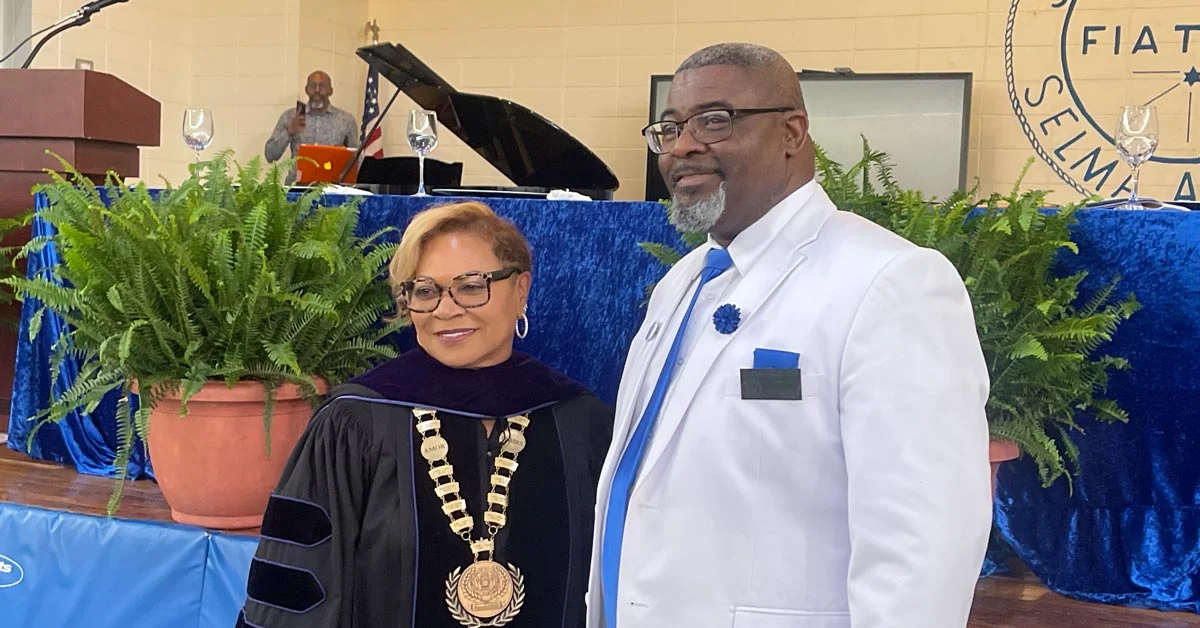In a divided world where history is often twisted or forgotten, Historically Black Colleges like Selma University are “a necessity,” Miles College President Dr. Bobbie Knight said at Selma University’s Founders Day Celebration.
Selma University celebrated 147 years of educating Black students on April 22. Knight, the keynote speaker, spoke of her childhood and growing up in Zion City, a small community in east Birmingham, in the 1950s.
“(It was) a time when the fight for civil rights was not history; it was life,” Knight said. She said the community relied on each other, their faith and their values, which, she said, “is the same spirit that gave birth to Selma University in 1878, just 13 years after the end of the Civil War.”
Knight told the audience that the leaders of the Alabama State Missionary Baptist Convention faced threats and had very little money after the Civil War, but they had a clear vision.
“They knew that education was more than a pathway to prosperity,” Knight said. “It was the key to dignity, identity and liberation.”
“Selma as a city is stitched into the very fabric of our country’s conscience,” Knight said, noting the lead role the city played in the Civil Rights Movement with Bloody Sunday and the events the led to the Voting Rights Act of 1965.
“Selma is not just a place. It’s a symbol,” Knight said. “It reminds us that progress often comes at great cost, but also that our resilience knows no bounds.”
Knight said in these times that legacy has to be protected.
“These are challenging times,” Knight said. “Our nation is politically divided, socially strained and economically uncertain.”
To sustain schools like Selma University, Knight spoke of the power of mentoring. She said mentoring “is not just a kind gesture; it is a responsibility.”
“To ensure our HBCUs endure, we must nurture those who sustain us,” Knight said. “Mentoring students, supporting faculty and engaging alumni” are ways Knight suggests HBCUs can continue.
Dr. Stanford Angion was made the 25th president of Selma University in April 2021. Under his leadership, the school has been steadily growing as it overcomes a loss of accreditation and federal funding.

